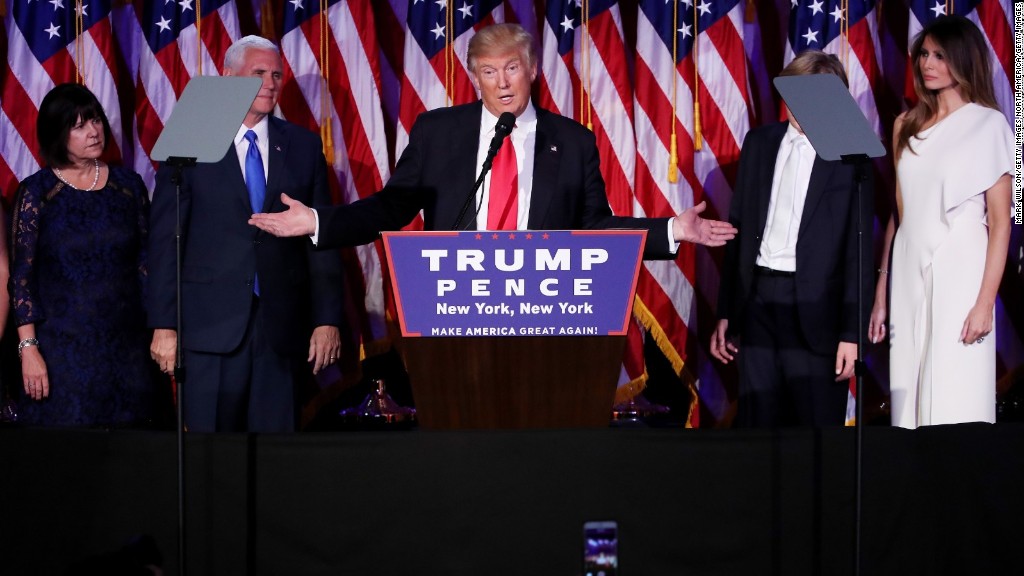
Americans are about to learn a lot more about Donald Trump now that he's been elected the 45th president of the United States. How he'll handle real power, who he'll pick for his cabinet, how he'll respond to critics now that he's under pressure to deliver on his promises, the list goes on.
But one thing the country still may learn nothing about are Trump's tax returns.
Presidents are under no legal obligation to release their tax returns. But every president since Richard Nixon has done so while in office as part of a tradition of financial transparency, according to tax historian Joe Thorndike.
During the campaign, Trump refused to reveal his tax returns -- upending a 40-year tradition observed by presidential nominees from both parties. His oft-stated reason: His returns were under audit, and he'd release them when the audit is complete.
But critics pointed out that an audit does not legally prevent anyone from sharing their tax returns publicly, and Trump could have if he wanted. Despite growing calls to release them, and even leaked pages of his 1995 tax return, Trump still chose to keep them private.
The question now is what will he do as a sitting U.S. president?
Related: The latest theory on how Trump avoided paying taxes on nearly $1 billion
Just because Trump bucked tradition as a nominee doesn't mean he will do the same once he's in the Oval Office.
But chances are fair he'll never release them.
As with every sitting president, "his returns will be routinely audited as long as he is in office," Thorndike said. "Given his position during the campaign about releasing returns under audit, I don't think we should expect to see any public release during his presidency."
